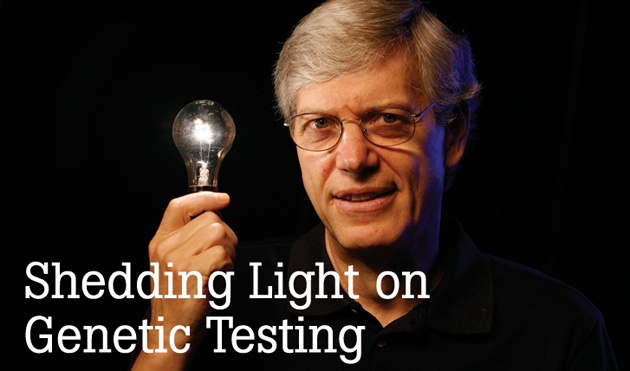In the Words of Dr. Philip Silverman • Majorie Nichlos Chair in Medical Research
Learning your genetic “secrets” can be a deeply emotional issue. Can you live happily without knowing? Or not? You need to sort out how you’ll deal with it beforehand, because once you have the results, the “gene’s” out of the bottle.
Some diseases—sickle cell anemia, Huntington’s disease, cystic fibrosis—are the result of a single gene. We can test for those diseases. But we can’t stop them. At least not yet.
Would you want to know you were going to get sick if there was little doctors could do to help you?
Employers can require drug testing. Can genetic testing be far behind? Would it be constitutional?
The majority of diseases arise from the interplay of many genes. That’s the way it is with cancer and heart disease. So most of the time, genetic testing only gives you a probability. The rest is about lifestyle, factors like exercise, diet and smoking—things you should be concerned about anyway.
If your parents died young of some disease, that’s an obvious red flag. In that case you don’t need predictive testing. Many lives could be saved if people just paid attention to those lower-tech warnings.
My father died at 56 of a heart attack. I don’t need to know more than that. I just do all I can do to avoid the same fate.



